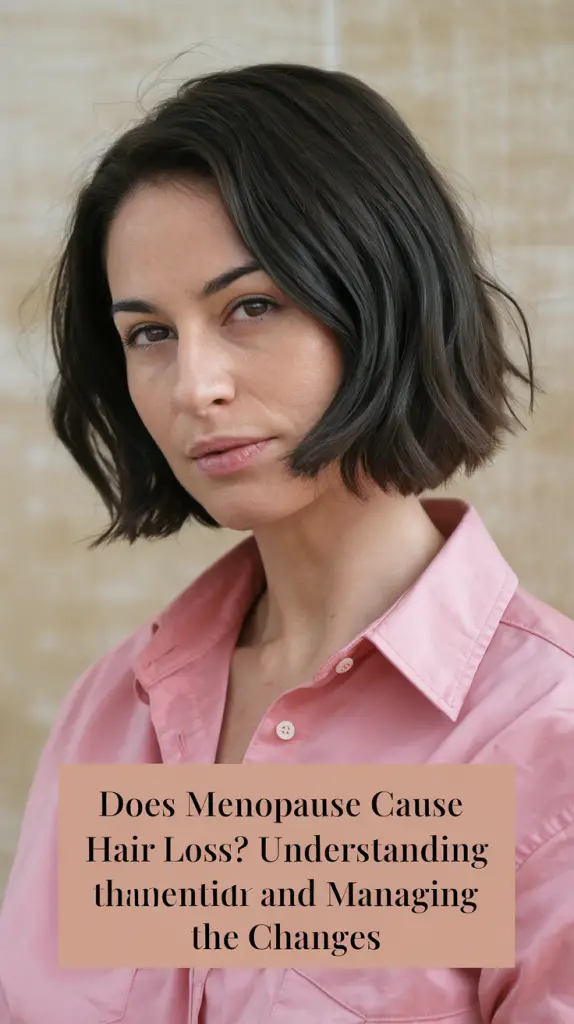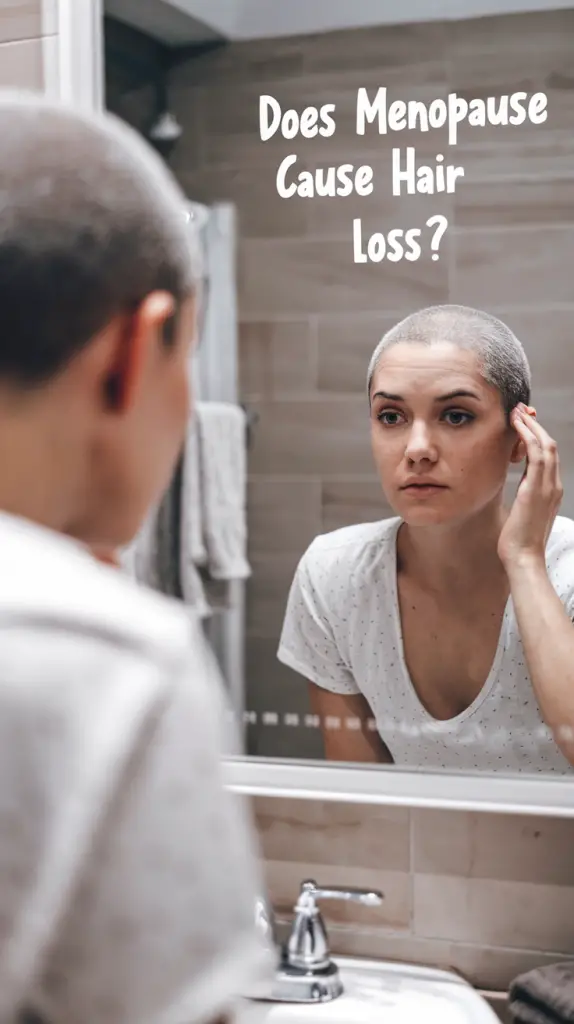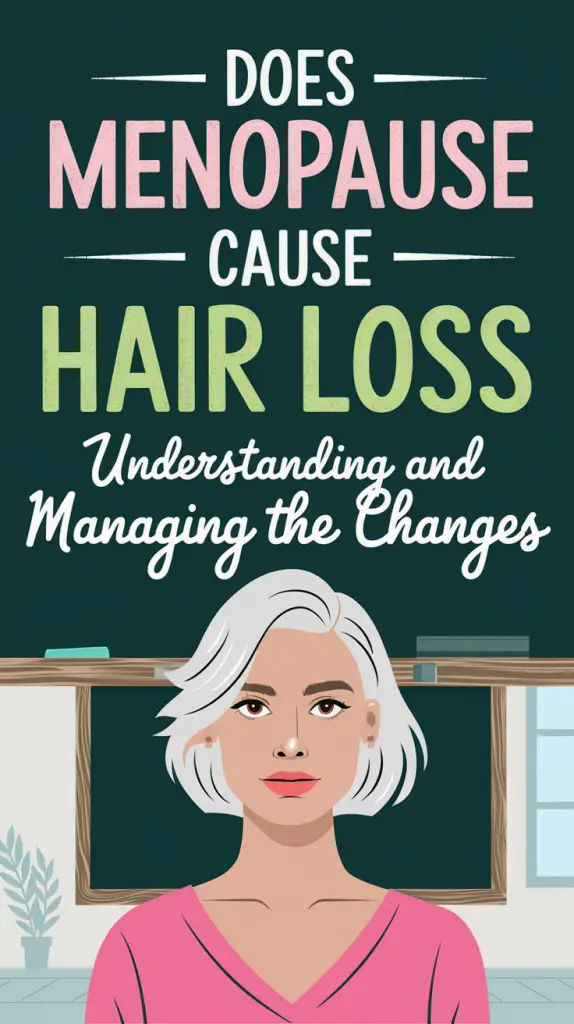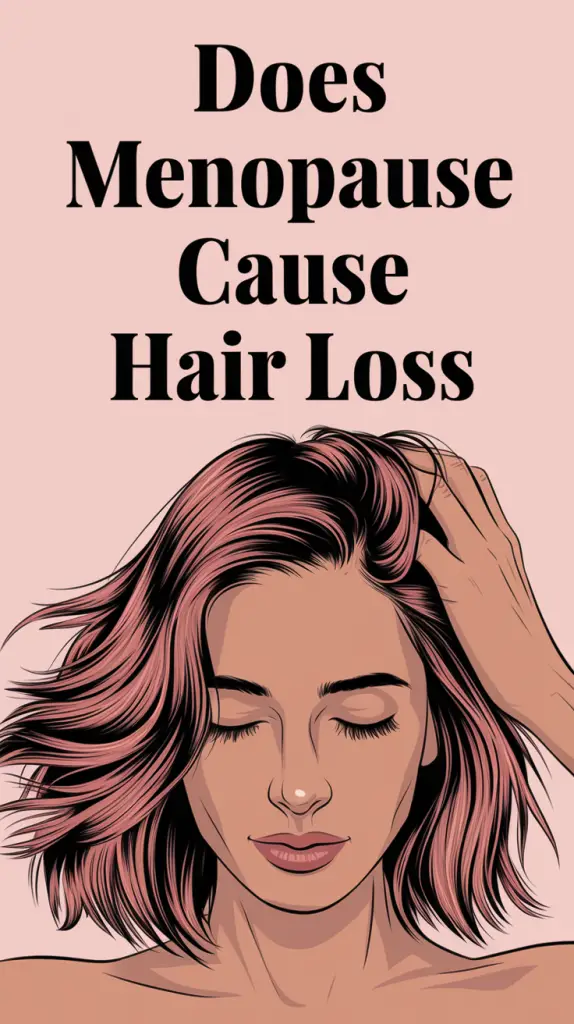Does Menopause Cause Hair Loss? Understanding, Managing, and Preventing the Changes
Hair loss during menopause is a topic that many women don’t openly discuss, but it’s a reality that can impact self-esteem and confidence. This article dives into the reasons behind menopausal hair loss, practical solutions to manage it, and how you can take control of your hair health during this life stage. On my journey of learning about this topic, I discovered many insights that I believe can help anyone experiencing similar challenges.
Why Does Menopause Cause Hair Loss?

The Hormonal Shift
Menopause triggers significant hormonal changes. The body produces less estrogen and progesterone, two hormones essential for stimulating hair growth. As their levels decline, hair growth slows, and strands become thinner. At the same time, androgens (male hormones) can increase, causing hair follicles to shrink and resulting in visible thinning, especially around the crown or temples.
Recognizing Menopausal Hair Loss
Key Symptoms
Identifying hair loss early is essential for effective management. Common symptoms include:
- Thinning Hair: Noticeable reduction in hair density, particularly at the hairline or crown.
- Increased Shedding: More strands found on pillows, in the shower, or on your hairbrush.
- Texture Changes: Hair becoming finer, drier, or more brittle.
What Sets It Apart?
Unlike alopecia or other conditions, menopausal hair loss typically results in overall thinning rather than bald patches. Some women may also experience increased facial hair due to hormonal imbalances.

Contributing Factors to Hair Loss
| Contributing Factor | Impact on Hair Loss |
|---|---|
| Hormonal Changes | Reduced estrogen/progesterone levels slow growth and increase shedding. |
| Genetic Predisposition | Family history of hair thinning can make menopausal hair loss more likely. |
| Stress | High cortisol levels disrupt the hair growth cycle. |
| Nutritional Deficiency | Lack of iron, vitamin D, or biotin weakens hair follicles and leads to breakage. |
| Medical Conditions | Thyroid issues or autoimmune diseases can exacerbate hair thinning. |
How to Manage and Prevent Menopausal Hair Loss
1. Adopt a Nutrient-Rich Diet
Your diet is the foundation of hair health. Incorporate these nutrients into your meals:
| Nutrient | Food Sources |
|---|---|
| Protein | Lean meats, eggs, legumes |
| Iron | Spinach, lentils, red meat |
| Omega-3s | Salmon, walnuts, flaxseeds |
| Biotin | Eggs, avocados, nuts |
| Vitamin D | Fortified cereals, fatty fish, sunlight |
Maintaining a balanced diet ensures your hair follicles get the nutrients they need for growth and strength.
2. Practice Stress Management
Stress is a major factor in menopausal hair loss. Incorporate stress-relieving activities into your routine:
- Exercise Regularly: Yoga or a brisk walk can help regulate cortisol levels.
- Meditate: Practicing mindfulness can improve overall mental well-being.
- Sleep Well: Aim for 7–8 hours of quality sleep to support hormonal balance.
3. Gentle Hair Care Routine
Taking care of your hair can prevent further damage:
- Use mild, sulfate-free shampoos that don’t strip away natural oils.
- Limit heat styling and avoid harsh chemical treatments.
- Moisturize regularly with conditioners or oils like argan or coconut.
4. Medical and Alternative Treatments
If lifestyle changes aren’t enough, consider these options:
- Minoxidil (Rogaine): A topical treatment proven to promote regrowth.
- Hormone Replacement Therapy (HRT): Helps balance hormones to reduce hair loss.
- Platelet-Rich Plasma (PRP): Stimulates hair follicles through injections.
- Herbal Remedies: Natural supplements like saw palmetto may support hair growth.

Addressing the Emotional Impact
Hair loss can take a toll on self-confidence. I’ve seen how small changes, like trying new hairstyles or wigs, can make a big difference. Consider seeking support from a therapist or joining online communities where you can connect with others experiencing the same issue.
Prevention Before Menopause
If menopause is approaching, taking proactive steps can help minimize future hair loss:
- Eat a nutrient-dense diet to build a strong foundation for hair health.
- Avoid tight hairstyles or treatments that cause excessive strain on hair.
- Keep your scalp hydrated with natural oils.
Conclusion
Menopause is a natural life phase, but the changes it brings—including hair loss—can feel overwhelming. By understanding the causes, taking proactive steps, and exploring effective treatments, you can manage hair loss and maintain confidence. Remember, this journey is unique to every woman, and there’s no one-size-fits-all solution. Stay informed, seek support, and take control of your hair health.
FAQs
1. Can menopause cause hair growth in unexpected areas?
Yes, due to increased androgen levels, some women may notice more facial hair growth during menopause.
2. How long does it take to see results from hair loss treatments?
Results vary, but treatments like minoxidil typically take 3–6 months to show noticeable improvements.
3. Does hair loss stop after menopause?
For many women, shedding stabilizes post-menopause, though hair may remain thinner due to aging.
4. Are natural remedies effective?
While natural remedies like scalp massages and essential oils can help, they work best when combined with medical treatments.
5. What’s the difference between menopausal hair loss and alopecia?
Menopausal hair loss causes diffuse thinning, while alopecia areata leads to patchy bald spots.

